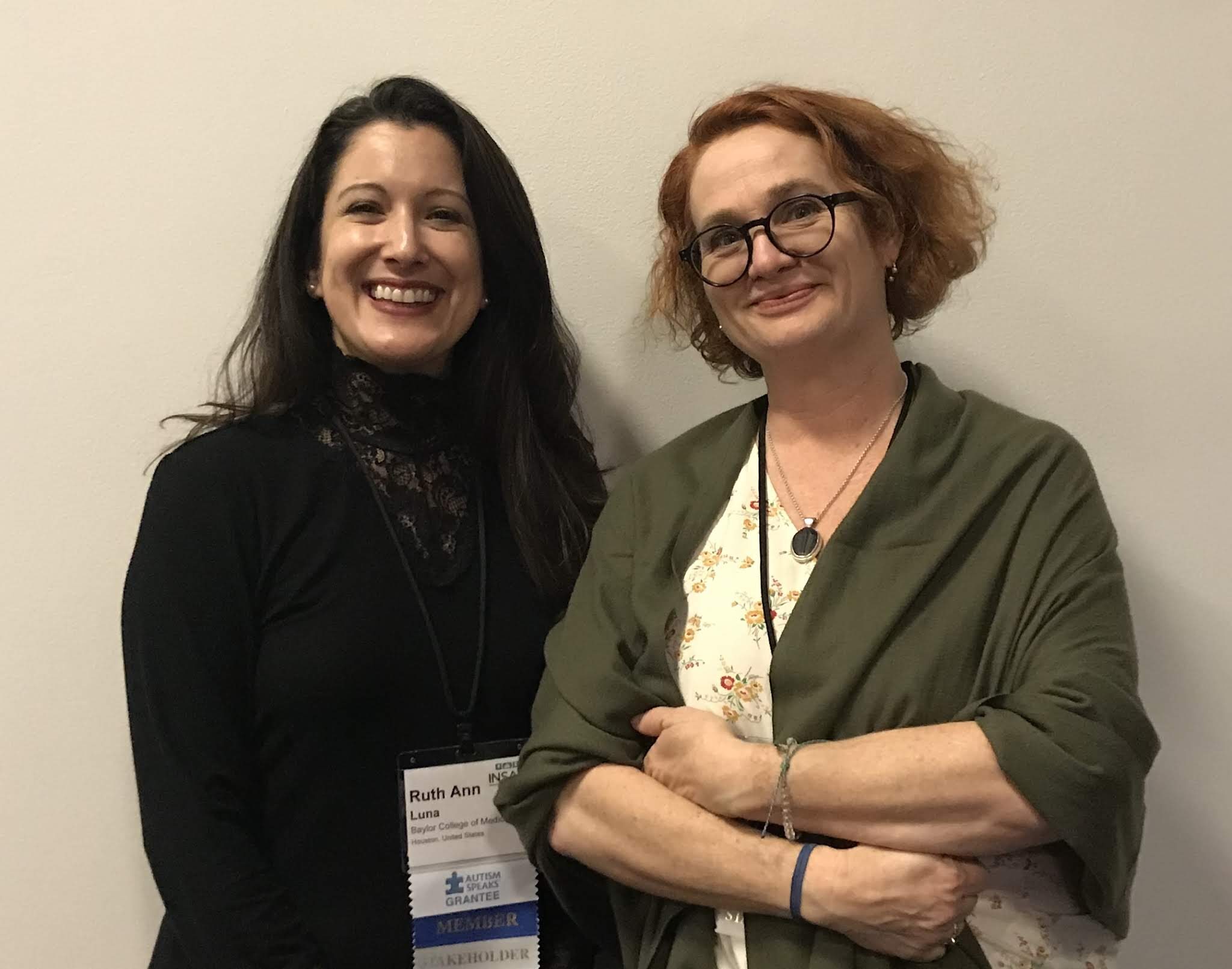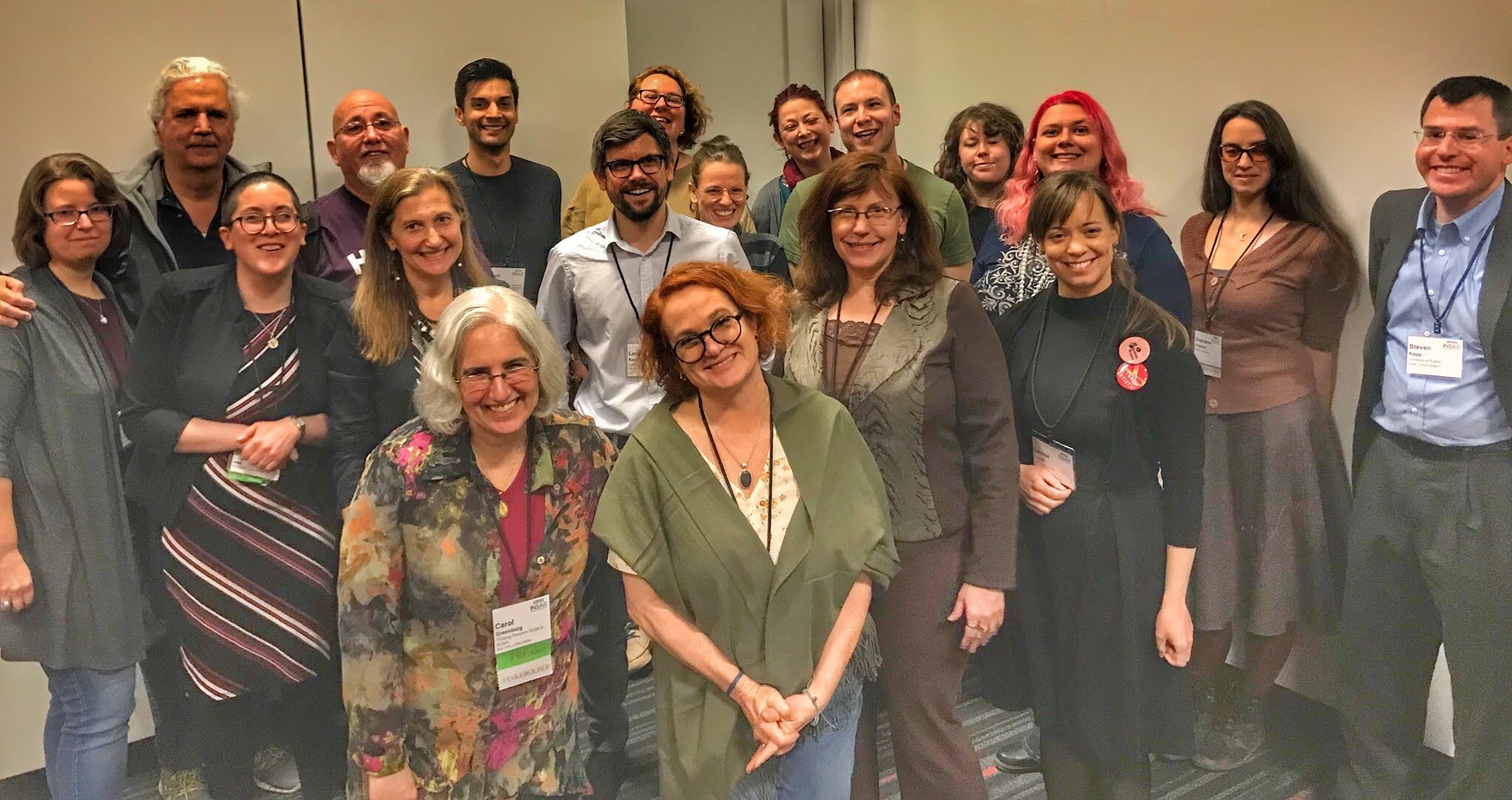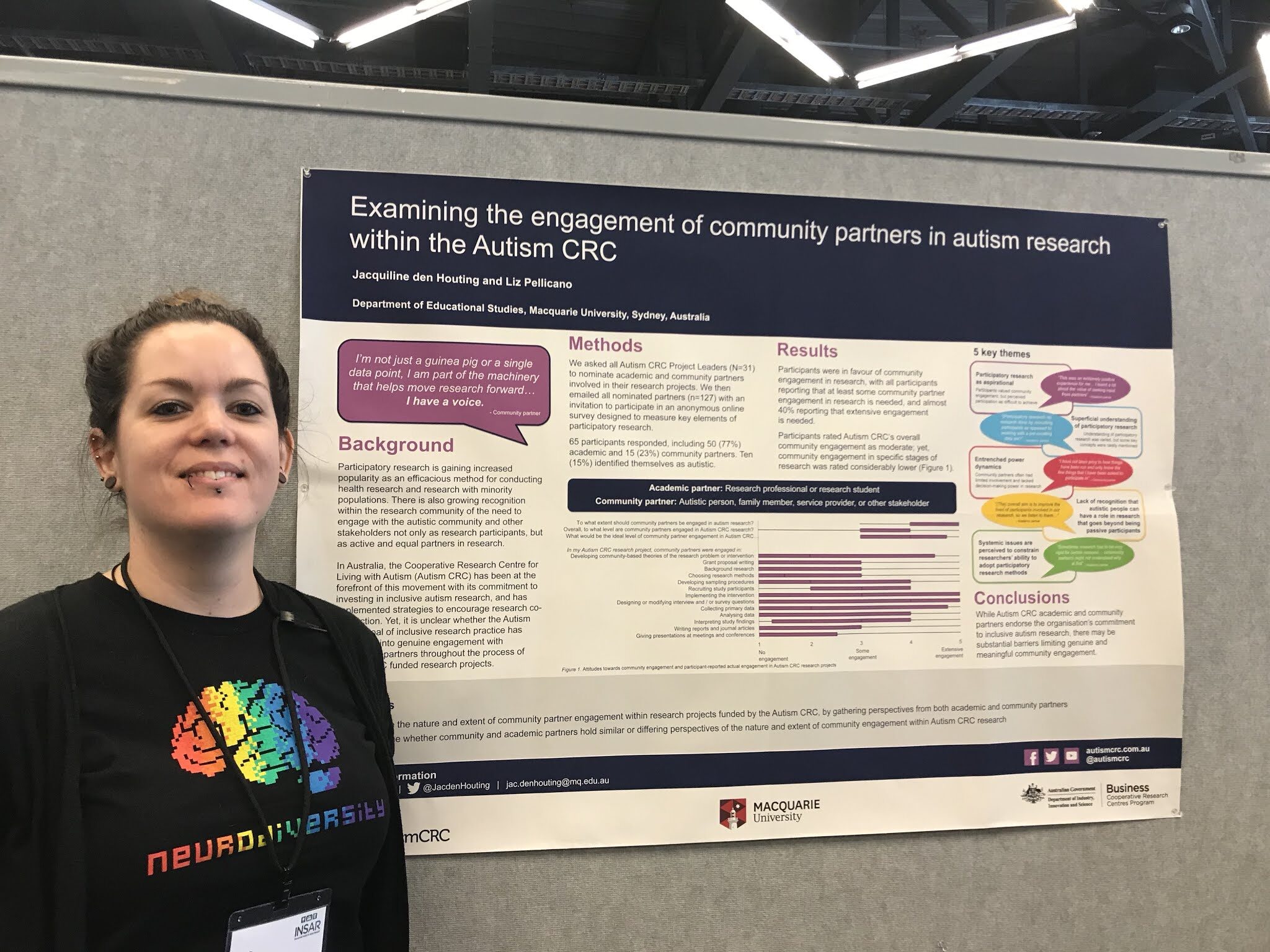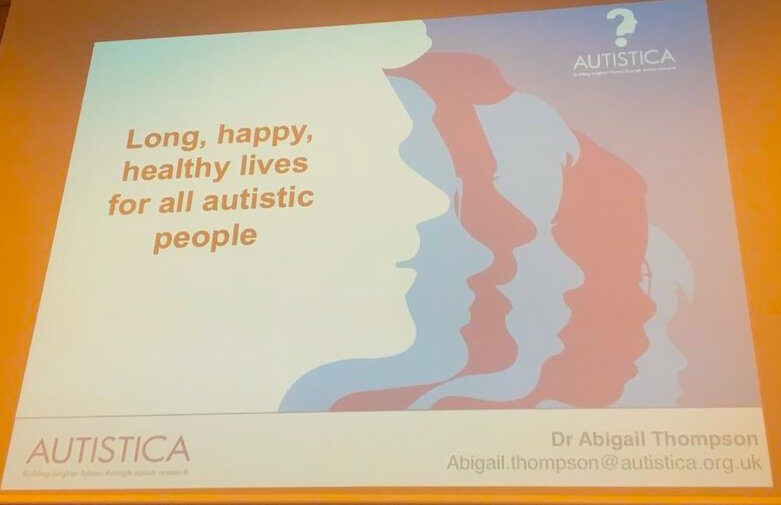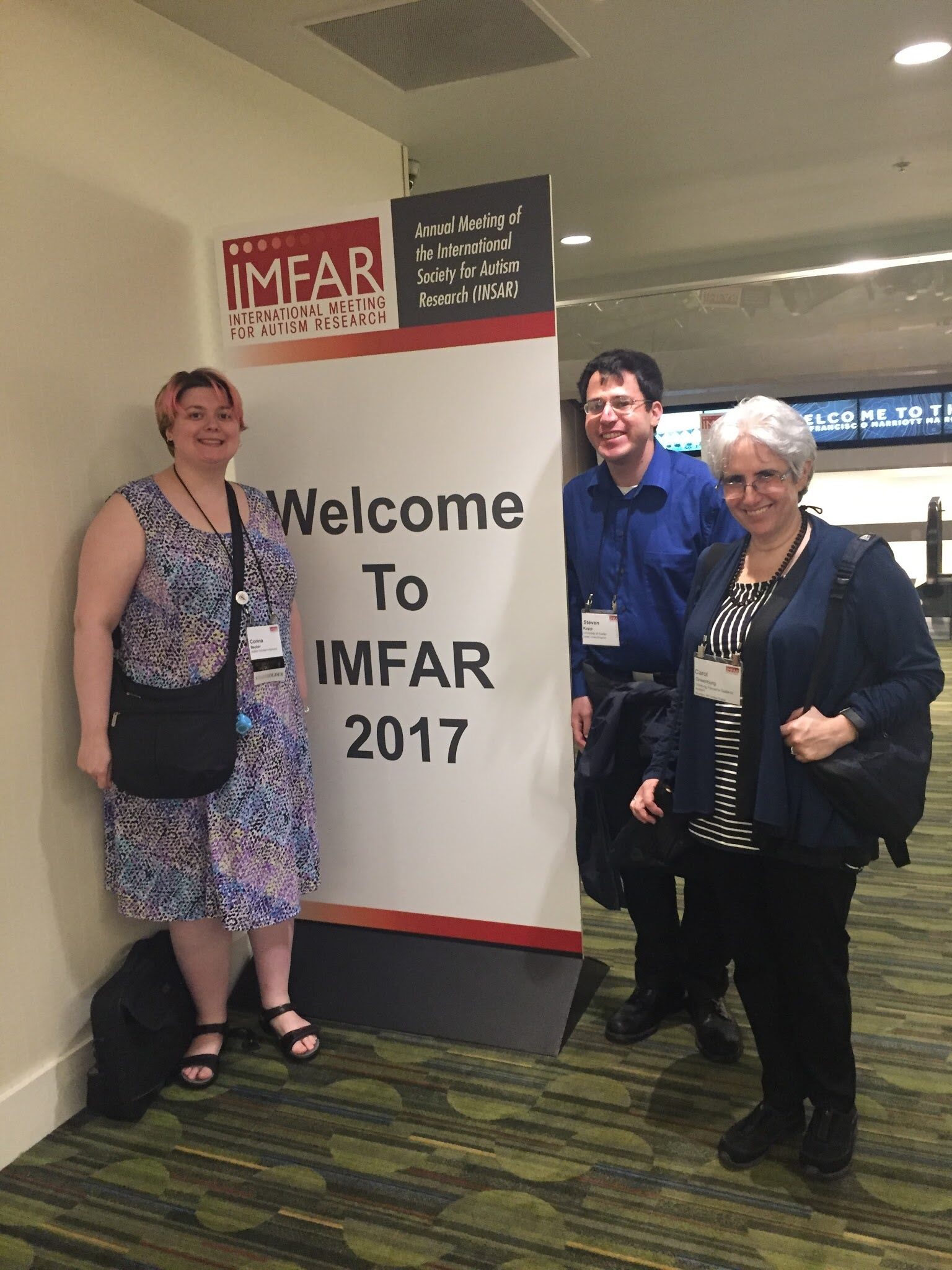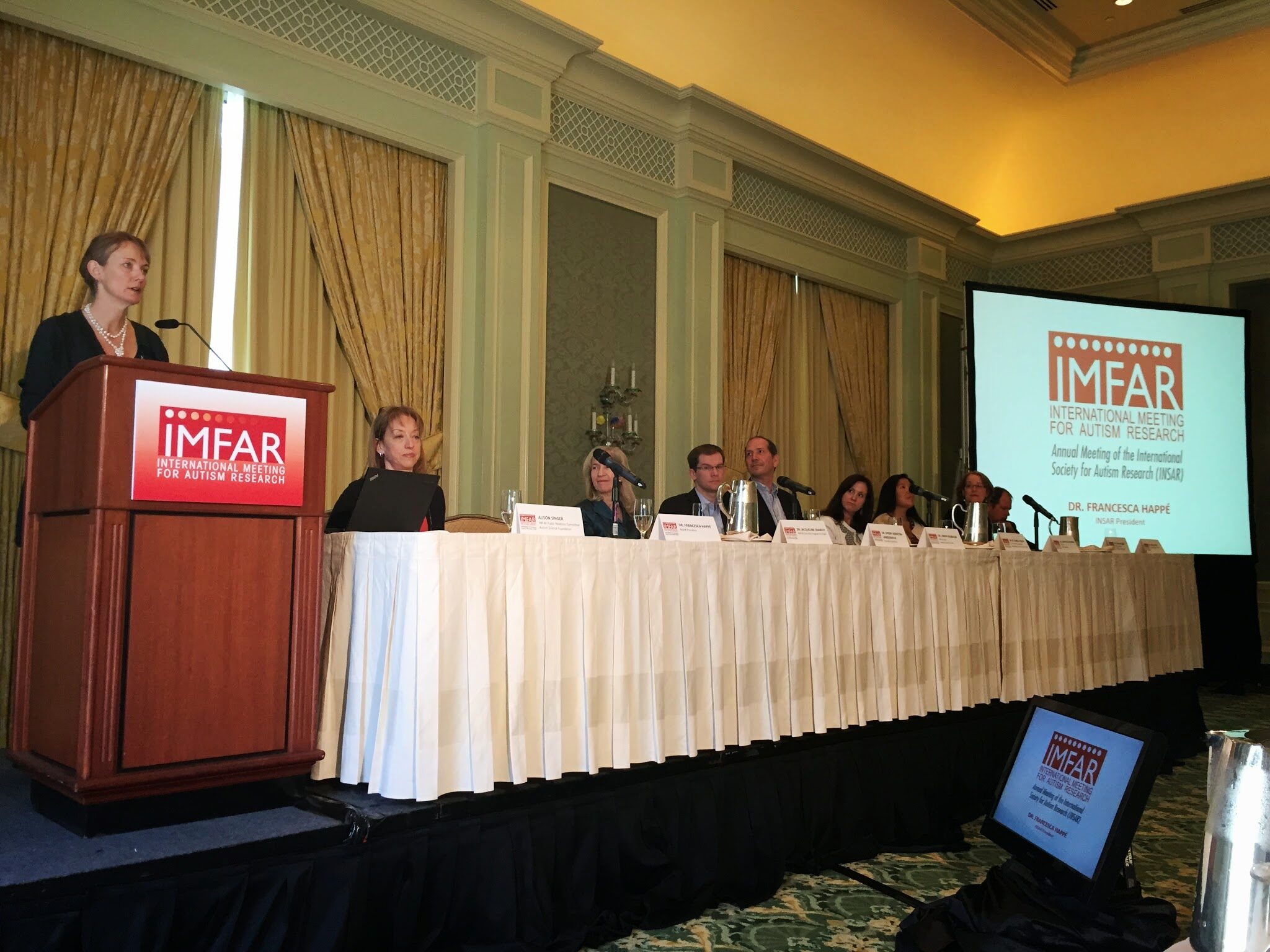Ann Memmott annsautism.blogspot.com In the recent Lancet article The gut microbiome in neurological disorders by Cryan et al, confused researchers have mistaken reducing stomach pain for curing autism (yet again). Now, autism researchers, when was the last time you had a hurty tum? How was your behaviour? Having an ‘aha!’ moment now? Thank you. If you want a hint of the joys within the Lancet paper: it references Tomova et al’s 2015 paper Gastrointestinal microbiota in children with autism in Slovakia, which involves nine autistic children ages 2-9, in an unblinded study (meaning they knew which kids got the probiotic supplement) and parent reports of “behaviour.” Apparently after the treatment autistic children showed less “challenging behaviour” which led to the the supposition that “…appropriate… microbiota is required for normal social development.” The problem is that autism isn’t a behaviour, any more than being Deaf is a “behaviour.” The cited quest to…
Tag: science
Dr. Ruth Ann Luna and Shannon Rosa. Photo © TPGA [image: A Latina woman with long dark brown hair, and a white woman with chin-length fluffy red hair and glasses, smiling and posing together.] Our editors Carol Greenburg and Shannon Rosa spoke with Dr. Ruth Ann Luna about her research on autistic kids and their incredibly diverse gut microbiomes during INSAR 2019, How her research is not about “special diets for autism,” how GI issues are co-occurring conditions and not a core trait of autism, how there’s no one universal single bacteria that is associated with autism, how GI profiles are ofter family- rather than neurotype-specific, and how this research may translate into real world supports for autistic people. —- Shannon Rosa: Thank you so much for being here. Can you tell us a little bit about your background and what brought you into this area of autism and gut microbiome research?…
AutINSAR is a conversation between autistic people and/or autism researchers about needed autism research directions, priorities, oversights, course corrections, and goals.
Shannon Rosa Senior Editor The TPGA team attends INSAR, the annual meeting of the International Society for Autism Research, annually and has done so for eight years. We participate as journalists covering important autism research for our community, and also from our combined personal investments as parents of high-support autistic teens, autistic self-advocates, and autism professionals. I found INSAR 2019 to be the most progressive annual INSAR meeting since I first started attending in 2011, going by TPGA’s priorities of spotlighting research addressing the health and well being of existing autistic people, centering improved autistic quality of life as an optimal outcome, and increasing and acknowledging participation of autistic people themselves. I also appreciate seeing an increasing emphasis on autistic people and their families’ day-to-day under-recognized concerns, including co-occurring conditions like GI issues and sleep disturbances, practical considerations of transitions to adulthood, suicidality and other mental health matters, physical activity,…
Shannon Des Roches Rosa Senior Editor, TPGA [Content note: This article discusses suicidality and ableism] The 2019 International Meeting for Autism Research in Montreal begins today, so let’s discuss how autism conferences can best help the autistic people without whom autism conferences would not exist—based on how past autism conferences have gone, what can improve, and why participatory research (involving autistic people themselves) needs to be prioritized. Last year’s INSAR 2018 conference gave me some hope for the future of autism research. I’d never before seen anything like the slide below at any INSAR conference, not since I first started attending INSAR in 2011 (when it was still “IMFAR”). This Autistica slide, with the the motto of “Long, happy, healthy lives for all autistic people” encapsulates everything I want from INSAR presenters, and autism research: Photo: Sara Luterman [image: Projected slide showing a group of human faces in profile, facing…
Shannon Des Roches Rosa Senior Editor, TPGA Welcome to IMFAR 2017! [image: three white autistic folks: Corina Becker, Steven Kapp, & Carol Greenburg, posing by the “Welcome to IMFAR 2017” sign.] We have been reporting from IMFAR, the annual International Meeting for Autism Research, since 2011. This year we provided general live coverage via Twitter, with select roundups including the Press Conference, and highlights from sessions such as Autism and Aging, Understanding Barriers to Autism Diagnoses for Children from Racial/Ethnic Minority Groups in the U.S., Mental Health Crises in Autistic Youth, and Autism and Sexuality. We also co-hosted the #AutIMFAR chat with autistic and autism research community members. While the research presented at IMFAR continues to be varied in scope, and is still too disproportionately skewed towards prenatal, infant, and early childhood findings, our takeaway is that the 2017 meeting in San Francisco had the biggest increase in neurodiversity-oriented content and attendees we’ve seen so far.…
Shannon Des Roches Rosa www.squidalicious.com Photo © Jeffrey Beall | Flickr / Creative Commons [image: Photo of metal letters spelling “Science” affixed to a brick wall.] At a recent workshop on How to Find Autism Information That Will Help You, I noted that a key factor for evaluating an autism resource is: Who does the approach primarily benefit? Autistic people themselves, or people affiliated with autistic people, such as families or teachers? It’s important to identify this aim, because approaches that support autistic people in living lives of maximized happiness and potential can be very different from the parent-centered approaches—which too often portray autistic people as problems to be managed and controlled. We at Thinking Person’s Guide to Autism support the helping approach, and routinely criticize the problem/control approach—an ongoing effort as the latter remains pervasive both in popular culture, and in research. The problem/control approach is also a theme…
Shannon Des Roches Rosa with Carol Greenburg Your faithful TPGA editors spent most of last week in Baltimore, Maryland at IMFAR, the International Meeting for Autism Research. We gleaned as much as we could from the 2000 scientists, professionals, autistic people, and family members from all over the world who spent three full days talking about the most current findings and trends in autism research. But we didn’t cover everything or meet everyone we wanted to, because doing so is not physically possibly without a Time Turner. (If you ever want to experience abject FOMO — fear of missing out — by all means, go to IMFAR.) Overview Ninety-nine percent of the researchers at IMFAR are the nicest, most well-meaning scientists one could ever meet, which makes for a friendly atmosphere. We were happy to see significant progress on some research fronts: only a single presentation about vaccines, and it…
Shannon Des Roches Rosa www.ThinkingAutismGuide.com twitter.com/shannonrosa TPGA has made a point of attending IMFAR, the annual International Meeting for Autism Research, since 2011. We believe it is important to go beyond learning about the current state of autism research by talking with and listening to researchers directly — and not just about current research, but about how research can better benefit autistic people, in addition to those who love, live, and work with autistic people of all ages and abilities. Here is what we learned and observed at IMFAR 2015, which took place last month in Salt Lake City, Utah. Note that the IMFAR conference itself — with scores of presentations and hundreds of posters — is overwhelming, and we only got to see part of what was actually presented and discussed in the full conference. We also live-tweeted several sessions from the conference, and compiled that coverage at Storify.…
There are so many absurd theories about autism causation. Who really would have the wherewithal to follow the growing list of “factors” linked to autism? (Emily Willingham would.)

